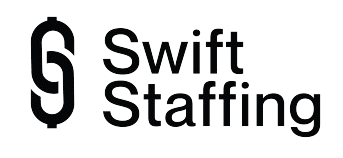Are you thinking, what’s the big fuss they make over a sheet of paper? Isn’t a resume just there to put your name on the waiting list for a vacant position? Hi, I’m here to tell you that your resume is a bit more than that.
Your resume is the very first impression a potential boss will have of you. So besides being a space to relay your employee experiences and qualities, a resume is what can push your name high up on the boss’s list of suitable candidates, or push it all the way down (or off).
It’s more than just a piece of paper. Let’s do it properly. Here are 3 of the things your resume should include so that you can earn yourself the job you’re vying for.
1.Up to date contact information
Such a simple step, yet so easy to skip and so vital not to. Imagine a potential employer calling the number on your resume in return to an application you sent in, only to get your father on the line, with hardware store chaos going on in the background. Did the employer reach you? No, he reached your dad on a shopping spree to Home Depot, which is the cell number you put on your resume way back when you created it.
When you create a resume, and more importantly, when you update your resume, you must make sure to update the contact information as well.
- Name: You need a proper first and last name, but don’t go making up names in order to sound professional, your regular surname and last name should do. And no nicknames please, and no random letters of the alphabet.
- Email Address: Your email address goes right under your name, and it must be serious sounding. Do away with fun, cutesy email addresses. If you need to create an additional email account for this, do so. Keep in mind that the display name on your outgoing emails should be proper too. When an email comes in from a name like g smith or Juicy Steak, uh, it does not sound very professional or job inducing.
- Phone number: Your own personal phone number is proper. Avoid putting phone numbers of family members, work extensions, or any other odd option.
- Home address: This is not a must-have, but if the job is local, you can include your current home address.
As part of your resume, you’ll be listing your previous experience in the work or volunteering fields. The point of this section is so that you can display the skills you’ve picked up as a previous employee wherever you may have worked, making you more qualified and experienced for a future job.
Without going into too much detail, many job titles may sound generic, think Secretary, Manager, Assistant etc.
To catch the eyes of your potential employee, show, don’t tell, your previous experience.
If you would put the following on your resume, Manager of an office of 4 employees, consider instead writing the following; Directed, managed, and supervised, 4 employees in a professional and formal office setting, including training and guiding new hires. Accountable for arranging and conducting monthly team meetings, keepings projects up to date, and ensuring office supplies and accessories are available when needed. Demonstrated responsibility, efficiency, and accountability in managing the office team and ensuring all work requirements were met.
Do you see how much more power the second format would have on a potential employer? Showing your experience in detail rather than telling it in a general sentence, puts all your qualifications, and even some emotion, into a blah piece and gets the employer involved in your capabilities, which creates a stronger pull to you as a suitable candidate.
3. Omit irrelevant experience
So we’ve seen that it is possible to engage the one who will be reading your resume, by being expressive in a way that describes your employee history in detail and explores your qualities. While it is a fabulous thing, there is a limit to how much of your employee history should be included on your resume.
Whatever experience you include, write it in a way that “shows” it. But here are experiences you probably should not include on your resume.
If you’re applying for a job as a bookkeeper in a professional office, writing on your resume of your year as a counselor in a backyard summer day camp back when you were 17 years old, is out of place. Though the qualities needed for either job may overlap, the tone of the two positions are not aligned. The fact that you were a counselor at a backyard day camp at age 17 will not necessarily be of benefit to your potential employer who’d like to hire you as a bookkeeper in a professional environment.
Suitable experience for this type of position, if applicable, would be managing more official and serious affairs at an older age.
Your experience does not have to be linked to bookkeeping, or even to office settings, but it’s not necessary to write of experiences that are worlds away.
Remember, you can always tailor your resume to suit whatever position it is you’re applying for, by removing or including previous work experiences.
Also, take note of the years. You may be 28 years of age now. What happened 11 years ago at age 17, may or may not be applicable today. 17 is young, a lot has happened since, and it’s not what your employer is looking for. Try to include relevant work history, and omit the irrelevant fun times you had, way back then.

